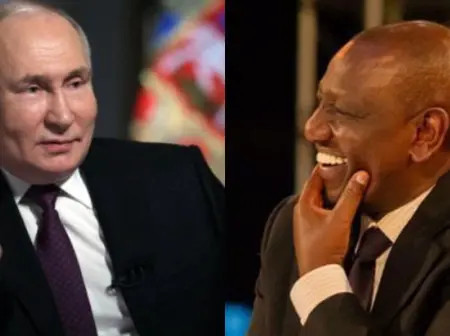The Russian government, in response to Kenya, has clarified its stance on transforming the Multinational Security Support (MSS) mission in Haiti into the Gang Suppression Force (GSF).
Russia clarified its abstention on the UN vote, citing concerns over funding, the clarity of the mandate, and the effectiveness of previous missions.
In an explanation by First Deputy Permanent Representative to the UN Vassily Nebenzia, Russia stated that while it does not oppose decisive international action to combat crime in Haiti, it remains cautious about the design and sustainability of the new mission.
“We maintain our view that the Council is once again being thrust into a highly dangerous and poorly thought-out undertaking,” Nebenzia said, stressing that prior missions had failed to achieve durable results.
The MSS, initially authorised in 2023, faced challenges including underfunding and limited operational capacity.
Russia highlighted that donor pledges for the MSS were often unmet, contributing to the mission’s limited effectiveness.
“Due to the chronic underfunding of the Mission, we have only witnessed further deterioration of the situation in the country and the expansion of gang influence beyond Port-au-Prince,” the Russian diplomat noted.
Despite these concerns, Russia acknowledged the appeal from Haitian authorities and neighbouring states not to obstruct the vote, which informed its decision to abstain rather than oppose the resolution outright.
Kenya, conversely, welcomed the transition from MSS to GSF, seeing it as a positive step toward stabilising Haiti and supporting local law enforcement efforts.
The GSF will consist of 5,500 police and military officers, supported by a UN Technical Office responsible for logistical assistance and resource mobilisation.
“Kenya certainly welcomes the transition of the MSS to the GSF,” a statement from the Kenyan Principal Secretary for Foreign Affairs, Korir Sing’oei.
GSF’s mandate includes conducting intelligence-led operations to neutralise and deter gangs, providing a more targeted approach compared to previous missions.
Kenya, having previously contributed personnel to the MSS, maintains confidence that the GSF can achieve meaningful results if adequately supported.
Russia warned that the new mission risks repeating past mistakes without addressing root causes such as the flow of illegal arms and Haiti’s governance challenges.
“Interveners and foreign missions come and go, often leaving behind more problems than achievements,” Nebenzia said.
The resolution was after a UN Security Council vote in which Russia abstained. While the vote signals international intent to stabilise Haiti, it also highlights ongoing debate about the best approach to supporting the country sustainably and effectively.
Kenya Haiti Mission Ends as UN Replaces Them
When Kenya agreed to lead the United Nations-backed Multinational Security Support (MSS) mission in Haiti, the decision was billed as bold and historic.
For a country struggling with gang violence, political collapse, and humanitarian disaster, it offered a rare glimmer of hope.
That mission ended on Thursday, October 2, after 15 months, with a mixed record.
The number of deployed personnel is expected to rise to 5,550, with a minimum deployment period of 12 months.
Under a United Nations mandate, unlike the MSS, the Gang Suppression Force (GSF) will have the authority to use military force in the event of threats to peace.
Its funding is also expected to be more secure.
Follow our WhatsApp Channel and X Account for real-time news updates.

Leave a Reply